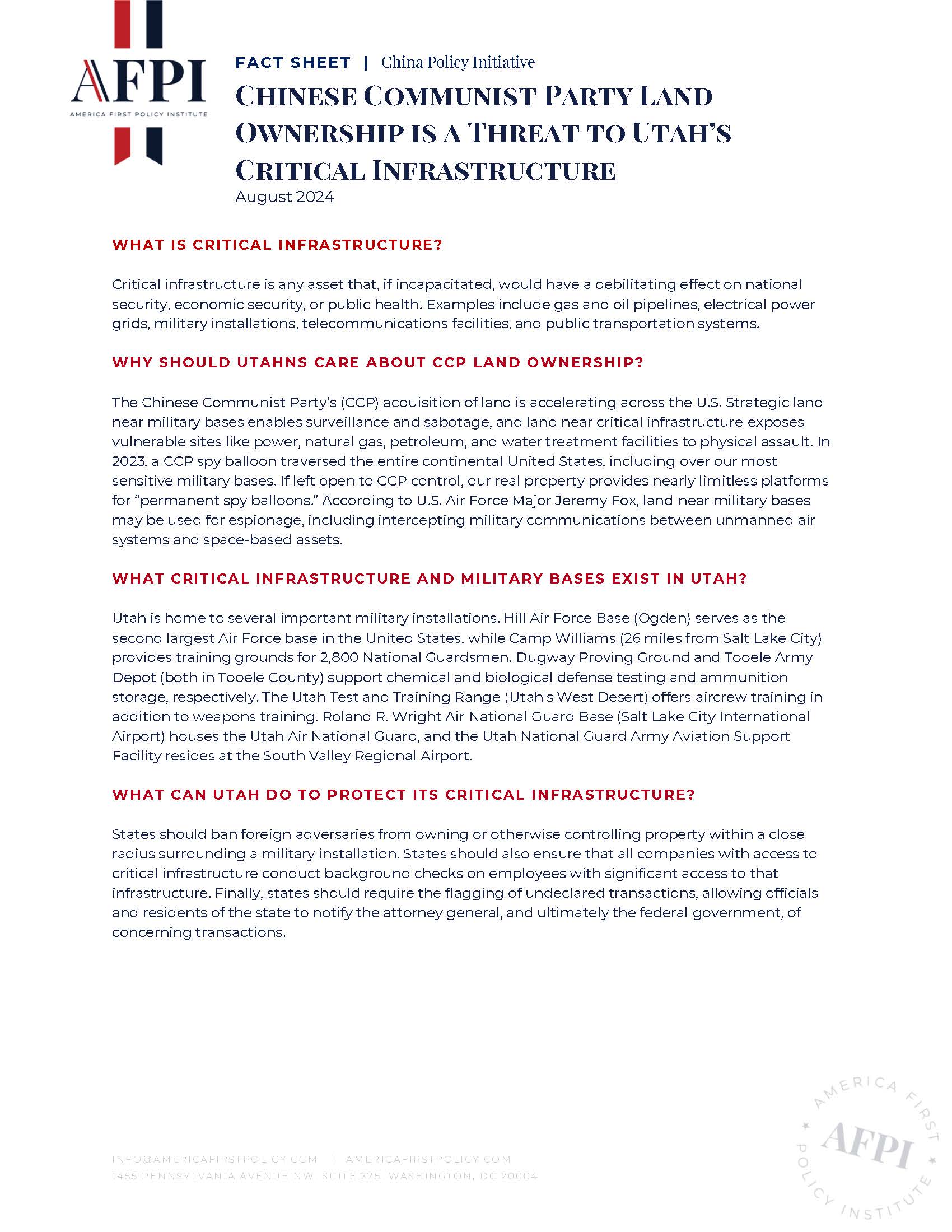America First Policy Institute
Chinese Communist Party Land Ownership is a Threat to Utah’s Critical Infrastructure
WHAT IS CRITICAL INFRASTRUCTURE?
Critical infrastructure is any asset that, if incapacitated, would have a debilitating effect on national security, economic security, or public health. Examples include gas and oil pipelines, electrical power grids, military installations, telecommunications facilities, and public transportation systems.
WHY SHOULD UTAHNS CARE ABOUT CCP LAND OWNERSHIP?
The Chinese Communist Party’s (CCP) acquisition of land is accelerating across the U.S. Strategic land near military bases enables surveillance and sabotage, and land near critical infrastructure exposes vulnerable sites like power, natural gas, petroleum, and water treatment facilities to physical assault. In 2023, a CCP spy balloon traversed the entire continental United States, including over our most sensitive military bases. If left open to CCP control, our real property provides nearly limitless platforms for “permanent spy balloons.” According to U.S. Air Force Major Jeremy Fox, land near military bases may be used for espionage, including intercepting military communications between unmanned air systems and space-based assets.
WHAT CRITICAL INFRASTRUCTURE AND MILITARY BASES EXIST IN UTAH?
Utah is home to several important military installations. Hill Air Force Base (Ogden) serves as the second largest Air Force base in the United States, while Camp Williams (26 miles from Salt Lake City) provides training grounds for 2,800 National Guardsmen. Dugway Proving Ground and Tooele Army Depot (both in Tooele County) support chemical and biological defense testing and ammunition storage, respectively. The Utah Test and Training Range (Utah's West Desert) offers aircrew training in addition to weapons training. Roland R. Wright Air National Guard Base (Salt Lake City International Airport) houses the Utah Air National Guard, and the Utah National Guard Army Aviation Support Facility resides at the South Valley Regional Airport.
WHAT CAN UTAH DO TO PROTECT ITS CRITICAL INFRASTRUCTURE?
States should ban foreign adversaries from owning or otherwise controlling property within a close radius surrounding a military installation. States should also ensure that all companies with access to critical infrastructure conduct background checks on employees with significant access to that infrastructure. Finally, states should require the flagging of undeclared transactions, allowing officials and residents of the state to notify the attorney general, and ultimately the federal government, of concerning transactions.
